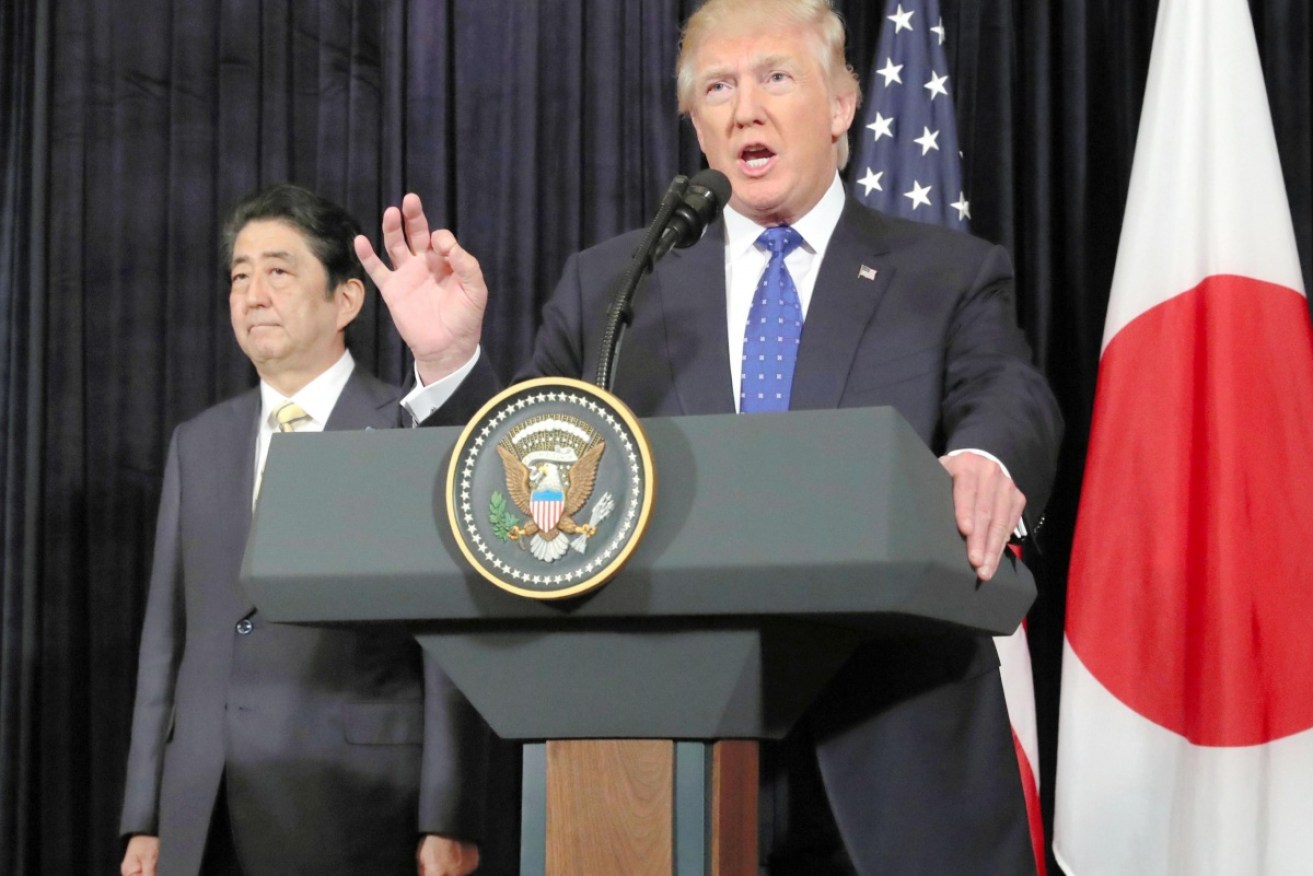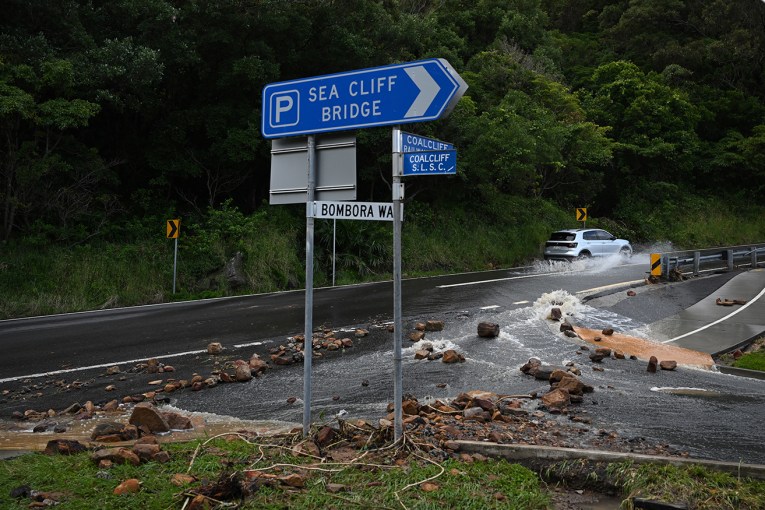Donald Trump’s ‘public’ national security scare


President Trump's public display of presidential activity during Japanese Prime Minister Shinzo Abe's visit has been labelled 'sloppy'. Photo: AP
US President Donald Trump has stunned the world by allowing paying guests at his Florida resort to listen in on high-level foreign policy discussions – and even take photos with the soldier who carries the nuclear launch codes.
In Mr Trump’s most recent visit to his Florida country club Mar-a-Lago, a dinner with visiting Japanese Prime Minister Shinzo Abe soon morphed into a public display of typically top-secret presidential activity when news came of North Korea’s missile test launch.
Rather than being ushered away to discuss the matter in private, Mr Trump and his top aides remained at their tables, referring to documents and making phone calls in clear view of their fellow diners.
Paying member of Mar-A-Lago takes photo of Trump advisers using cell phone flashlights to inspect apparently classified docs with Abe: pic.twitter.com/BNZJnjAuOw
— Natasha Bertrand (@NatashaBertrand) February 13, 2017
‘Publicity stunt’
Mr Trump’s decision to remain in a public setting as the news unfolded has Australian political commentators “mind-boggled”.
Melbourne University US politics lecturer George Rennie said the President left Mr Abe in an awkward position.
Mr Rennie said that under normal circumstances, senior advisers would whisper in the President’s ear and he and his company would be immediately whisked away to a secure setting to discuss the matter privately. This would encourage carefully-considered deliberations before a message was conveyed to citizens.
The venue of Mr Trump and Mr Abe’s meeting also proved problematic, he added.
“I can ripple no comparison where computer screens could be seen or speech could be overheard by people who don’t have security clearance. As far as I’m concerned this behaviour is unprecedented,” Mr Rennie told The New Daily.
“I’ve spent a lot of time in Japan and I’d imagine Abe would have been surprised by Trump’s reaction, but wanted to respect his host. North Korea has got to be the No.1 concern to the Japanese and I’d imagine Abe would not have been happy about the world seeing his facial expressions, body language and overhearing words exchanged in reaction to that news before he had time to deliberate.
“For Abe to walk out would have been a slight to the President.”
But Mr Rennie could see “no valid justification” for Mr Trump’s decision to stay.
“It’s bizarre. The whole thing is borderline comical, but incredibly concerning.”
https://twitter.com/mcspocky/status/831243055000862721
The ‘nuclear football’ exposed
A club guest dining at a nearby table, Richard DeAgazio, documented the scene, publishing photos on his personal Facebook account.
He posted a photo of himself posing with the man who carries the so-called “nuclear football” or briefcase that equips the president to authorise a nuclear attack.
This sparked shock reactions from citizens on social media who not only expressed concern about the man being identified but for the wider risks this exposure could mean for the country’s national security.
Associate Professor Tim Lynch, a US politics expert, said the incident displayed a “sloppiness” to Mr Trump’s leadership.
“It’s not like someone who got their hands on the briefcase could launch a nuclear war with an iPhone code, it’s much more elaborate than that,” Professor Lynch said.
“Trump’s part calculated, part blunder. But we can be sure of one thing, everything he does is completely deliberate, nothing is accidental.
“More than anything, this exposes a very immature administration. World leaders don’t make national security strategy around a restaurant table.
“Secrecy is absolutely crucial to the success of a presidency.”
$200,000 'PRESIDENTIAL' MEMBERSHIP PACKAGE
– enjoy our beautiful resort
– PGA golf course
– award winning fine dining
– start World War III pic.twitter.com/zRIhUCph9a— I am Jack's deteriorating rule of law (@LampersMichael) February 13, 2017
Future visiting dignitaries
Mr Rennie said the incident might make the leaders of other countries reconsider their protocols if ‘caught out’ in a similarly public scenario that could compromise national security.
“Countries would be thinking about how they would react if they got this kind of news during a visit to America,” he said.
“They’re obviously not going to reject Trump’s offer of visiting a public setting because Trump would lose face.
“But this might involve immediately leaving the scene to coordinate foreign policy discussions in private, or to use diplomatic channels to establish protocols ahead of their visit.”








